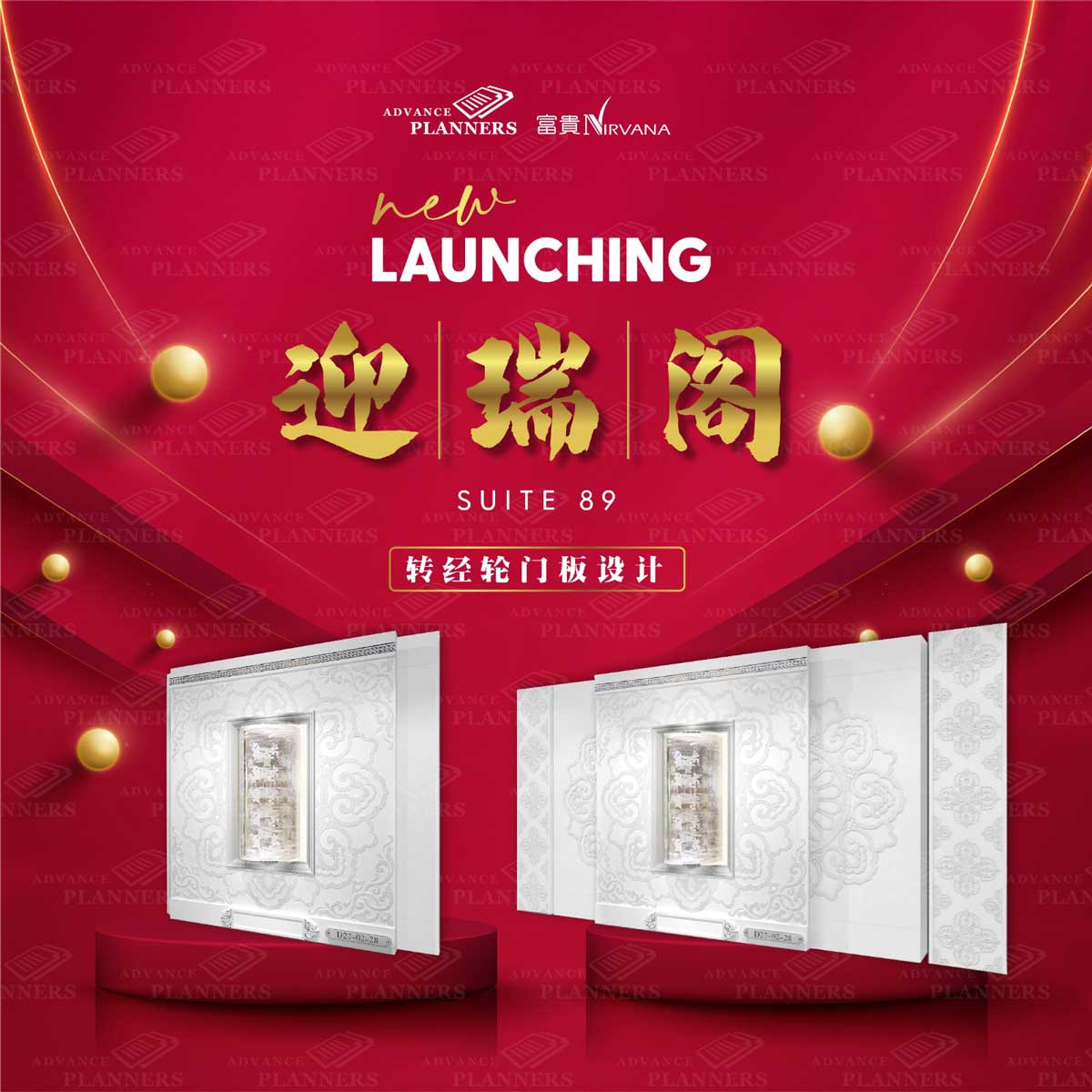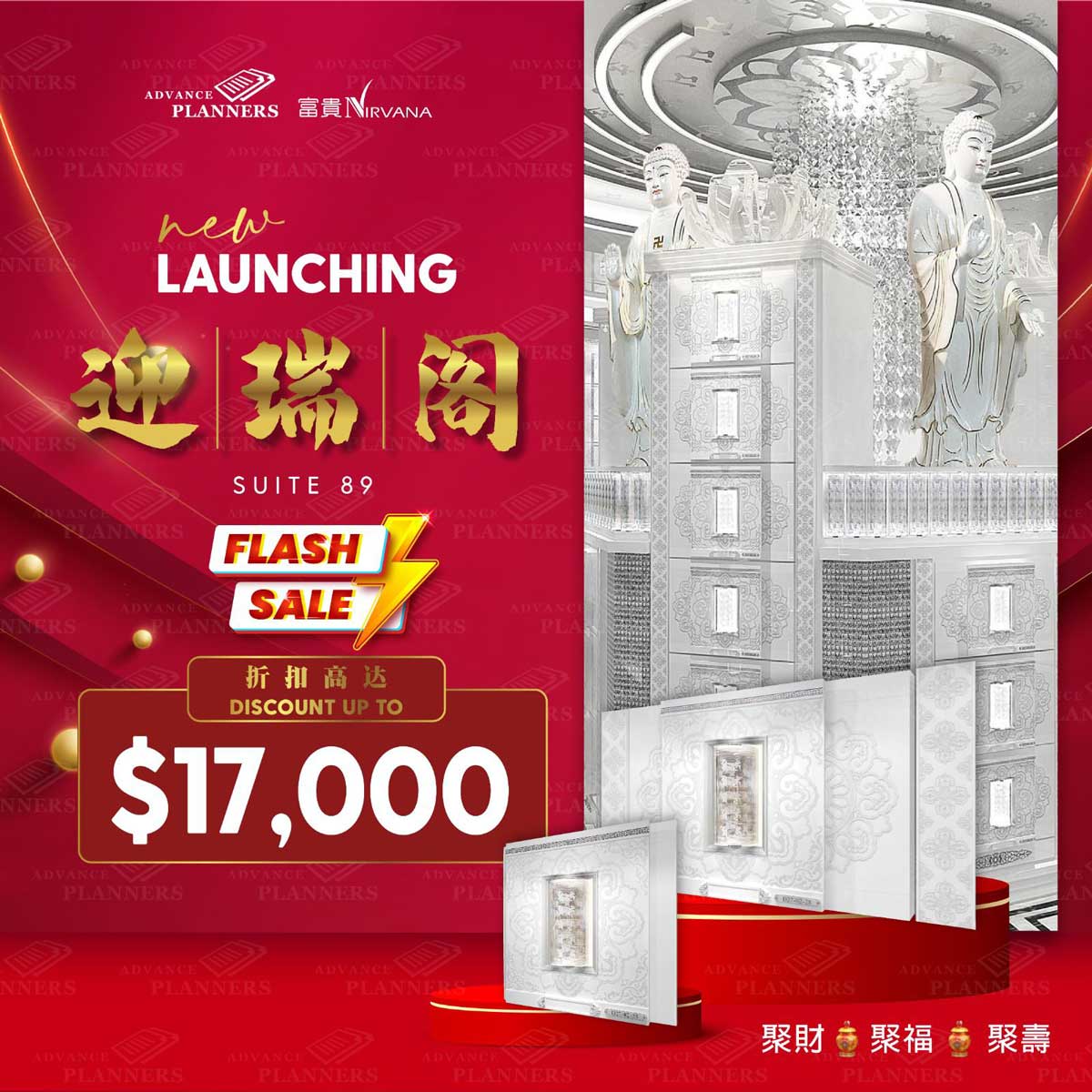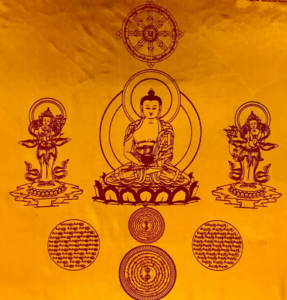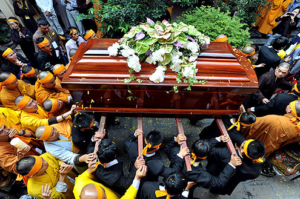In times of grief and loss, cultures around the world turn to funeral rituals as a means of honouring the departed and finding solace in communal mourning.
These rituals, deeply rooted in religious beliefs and cultural traditions, vary widely across different faiths and societies.
In this article, we delve into the distinct practices and beliefs surrounding Buddhist funerals and Christian funerals, exploring their respective customs, symbolism, and attitudes towards death and the afterlife.
Buddhist Funeral
In Buddhism, death is viewed as a natural transition in the cycle of existence, marking the departure of the soul from one life to the next. Buddhist funeral rituals are guided by the teachings of the Buddha, emphasising compassion, impermanence, and the pursuit of enlightenment. Here are some key aspects of Buddhist funeral customs.
Beliefs about Death and Reincarnation
Central to Buddhist philosophy is the concept of reincarnation, wherein individuals undergo a continual cycle of rebirth determined by their karma, the cumulative effects of their actions in previous lives. Death is seen as a moment of transition, as the soul moves on to another existence by its karma.
Funeral Rituals and Ceremonies
Buddhist funerals are marked by solemn rituals aimed at guiding the departed soul on its journey and providing comfort to the grieving family. Monks or nuns typically lead these ceremonies, which may include chanting of sutras, recitation of prayers, and offerings of incense, flowers, and food. The chanting of sacred texts, such as the Heart Sutra or the Amitabha Sutra , is believed to help alleviate the suffering of the deceased and facilitate a favourable rebirth.
Below is an audio version of the Praise of Amita Buddha – Namo Amituofo Chant if you are interested in listening. Credit to: Amitabha Gallery
Mourning Period
In many Buddhist cultures, mourning extends beyond the funeral ceremony, with families observing a period of mourning that may last for several weeks or months. During this time, relatives and friends come together to offer support, perform acts of merit, and recite prayers for the deceased’s well-being in the afterlife.
Attitude Towards Death
Buddhist teachings emphasise the impermanence of life and the inevitability of death as a natural part of existence. Death is viewed not as an end but as a transition, offering opportunities for spiritual growth and liberation from the cycle of suffering.
Symbolism
Buddhist funerals are rich in symbolism, with each ritual offering carrying deep spiritual significance. Symbols such as the lotus flower, symbolising purity and enlightenment, and images of the Buddha or Bodhisattvas adorn funeral altars, serving as reminders of the path to liberation from suffering.
Funeral Etiquette
Buddhist funeral etiquette varies across different cultures and traditions, with customs ranging from bowing to offering incense as a sign of respect for the departed. Guests are expected to observe silence and solemnity during rituals and ceremonies, reflecting the solemnity of the occasion.
By embracing Buddhist funeral customs, practitioners find solace in the belief that death is not the end but a transition to another phase of existence, guided by the principles of compassion, mindfulness, and spiritual awakening.
Christian Funeral
In contrast to Buddhist beliefs, Christian funeral rituals are grounded in the teachings of Jesus Christ and the promise of salvation through faith. Christian funerals serve as a testament to the belief in an afterlife and the hope of eternal reunion with God. Here are some key aspects of Christian funeral customs
Beliefs about Death and the Afterlife
Central to Christian theology is the belief in an afterlife, where the soul ascends to heaven, hell, or purgatory based on one’s faith and actions in life. Death is seen as a transition to eternal life, with the promise of redemption and reunion with God for those who have lived according to His teachings.
Funeral Rituals and Ceremonies
Christian funerals typically involve a service conducted by a priest or minister, often held in a church or funeral home. The service may include prayers, hymns, readings from the Bible, and a eulogy celebrating the life and faith of the deceased. The sacraments of baptism, confirmation, and communion may also be incorporated into the funeral rites.
Mourning Period
While there isn’t a prescribed mourning period in Christianity, grieving continues for an indefinite period, with support provided by the faith community and the comforting assurance of God’s presence. Christian mourners find solace in the belief that their loved one has found peace in the arms of God.
Attitude Towards Death
Christian teachings offer reassurance in the face of death, emphasising the victory of Christ over sin and death and the promise of resurrection for believers. Death is viewed not as an end but as a passage to eternal life, where the soul is united with God in a state of eternal bliss.
Symbolism
Christian funerals are marked by symbols of faith and resurrection, such as the cross, which symbolises the sacrifice of Jesus Christ for the redemption of humanity. Religious imagery, such as stained glass windows depicting biblical scenes, serves as a reminder of the hope and salvation offered through Christ’s death and resurrection.
Funeral Etiquette
Christian funeral etiquette typically involves dressing in sombre attire, such as black or dark colours, as a sign of respect for the deceased and their family. Guests offer condolences and support to the grieving family, reflecting the Christian values of compassion and solidarity.
In embracing Christian funeral customs, believers find comfort in the promise of eternal life and the assurance that their loved ones have found peace and redemption in the presence of God.
Conclusion
Buddhist funerals and Christian funerals, while distinct in their beliefs and practices, share a common purpose and that is to honour the departed and provide comfort to the bereaved in times of loss. Whether guided by the principles of compassion and mindfulness or the promise of redemption and eternal life, these rituals serve as a testament to the enduring human quest for meaning, connection, and spiritual transcendence in the face of mortality.
If you’re seeking compassionate and mindful guidance through the process of Buddhist funeral arrangements in Singapore, Nirvana is your trusted partner and companion. With a deep understanding of Buddhist customs and traditions, we make sure to provide the utmost respect and support services to honour your loved one’s journey. To learn more about how we can assist you during this difficult time, pay us a visit here or contact us.






